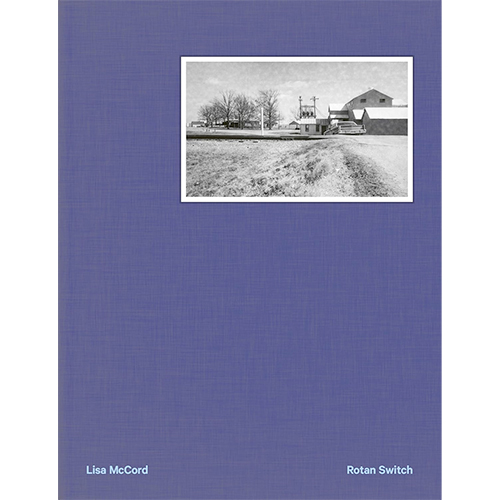Rotan Switch takes its name from the community’s central landmark–the railroad switch where farmers loaded their cotton onto trains headed out of the Delta. Although it hasn’t been used in years, it remains a potent symbol of the complex intersections of industry and agriculture, of race and injustice.
—
Lisa McCord
The passing of time has a way of adding context and layers of meaning to any story, and photographer Lisa McCord's expansive and nuanced project and book,
Rotan Switch, (
Kehrer Verlag, May 2024) reflects the dedication of over 40 years of observation and documentation of her rural southern family farm and community.
In 1978 at age 21, McCord began photographing her grandparents' cotton farm located in the South of rural Arkansas, 50 miles north of Memphis, and along the Mississippi River. The comprehensive book includes analog photographs, family snapshots and ephemera, monochrome photographs, color polaroids, and recipes, all combining to give the viewer a unique window into a deeply personal exploration of the definitions home and community, race and industry. The photographs include images of herself, her family, the farmworkers, and caretakers to whom she grew close and shared her life, and the land itself.
In her essay for the book McCord considers how her images provide both a glimpse of life into this particular time and place, and also exist within the context of some of the aggregate cultural and social factors unique to the rural South.
She expands on this shifting awareness within herself as she grew further into adulthood and writes eloquently about the historical and personal complexities present in both the images themselves, but also in the act of being able to photograph and document in this way. By sharing her insight as accompaniments to the photographs, she evokes a deeper immersion by the viewer into the images and implications of the project as a whole. She notes,
''These photographs are complicated; they exist in the context of the socioeconomic structures of the rural South. Although the subjects are family to me, as a white photographer and the granddaughter of a landowner, my photographs of the Black community implicate my own role in reinforcing these power structures. In a community in which most people spend their time working or caring for children, my ability to observe and document in itself has been a position of privilege.''
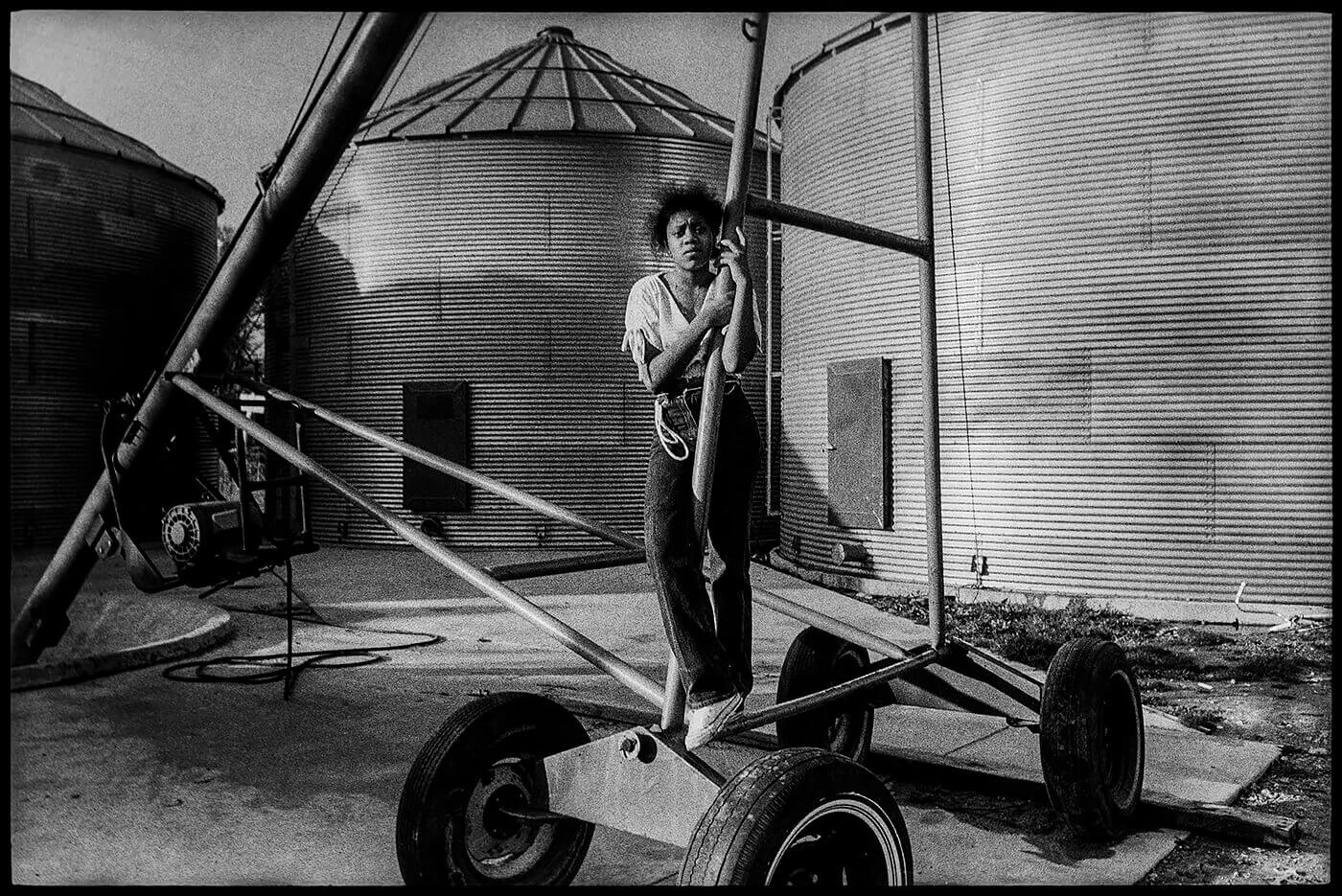
Cheryl with Silos, 1980 © Lisa McCord
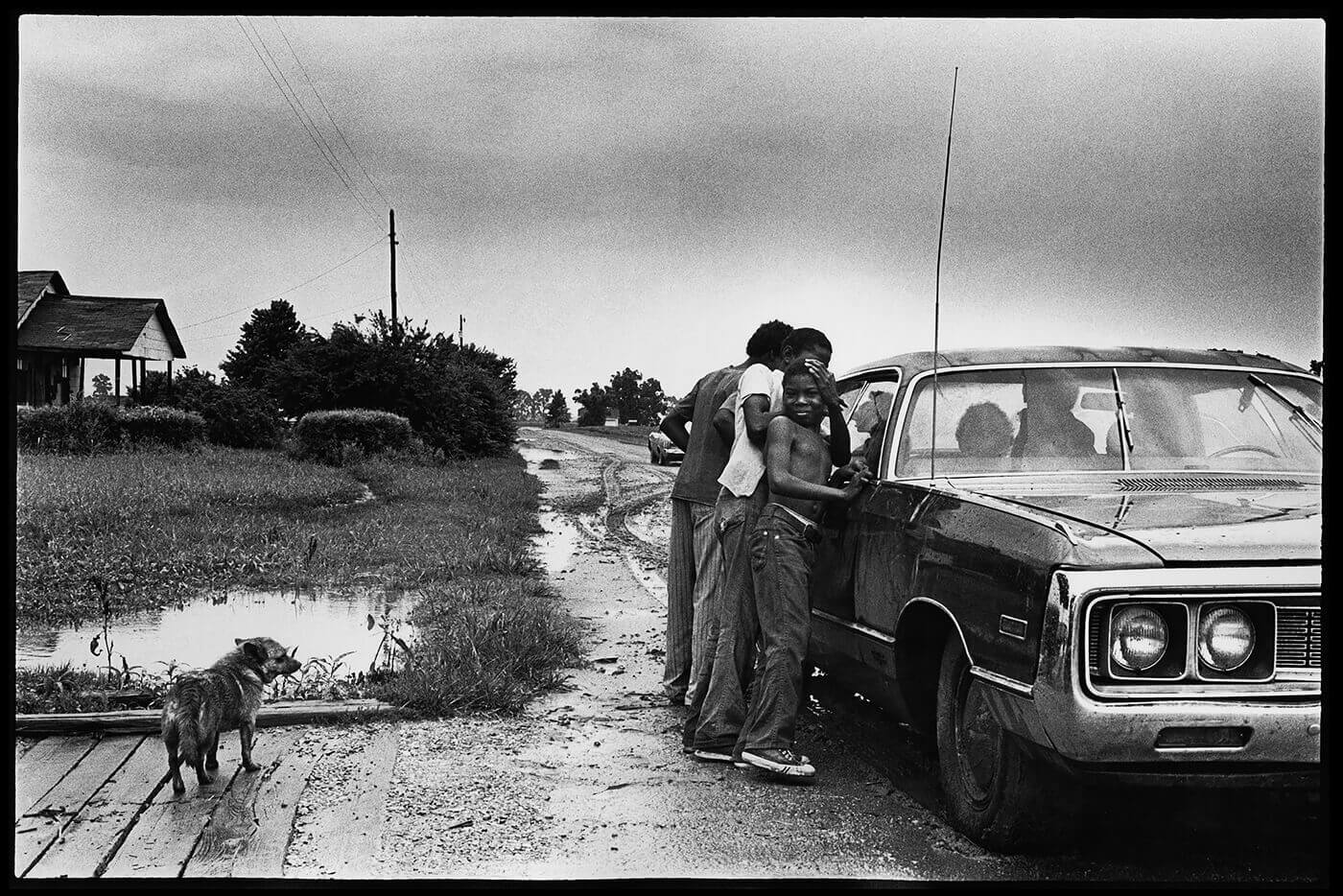
A Humid Day, 1980 © Lisa McCord
The book also provides different insights and angles to this discussion through essays by several other luminaries in the photography field. Alexa Dilworth, former publishing director and senior editor at the Center for Documentary Studies at Duke University, was also born and raised in the South and in her essay, she touches on this unique perspective and the considerations it implies. She writes,
“I will never be able to explain what it was like to grow up in the South, with all its freighted realities—a weight that is never really absent—because our history, the past, is always with us, always present.”
Of McCord's images, Dilworth also discusses the role of time in how it informs the project.
''The pictures are as much a product of the conditions of their making—a long process of knowing and being with others—as they are of the act of looking and recording. They are subjective and arise from close observation, a kind of engagement that moves everyone pictured to the center of attention, and here, that attention is evident, and it is returned.''
This body of work is also significant in that it was created by a woman and shows the depth and closeness of the relationships existing between McCord and the women on the other side of the camera. Dilworth notes
''…this collection of photographs is distinct in that it is made by a woman in the company of other women in private spaces.''
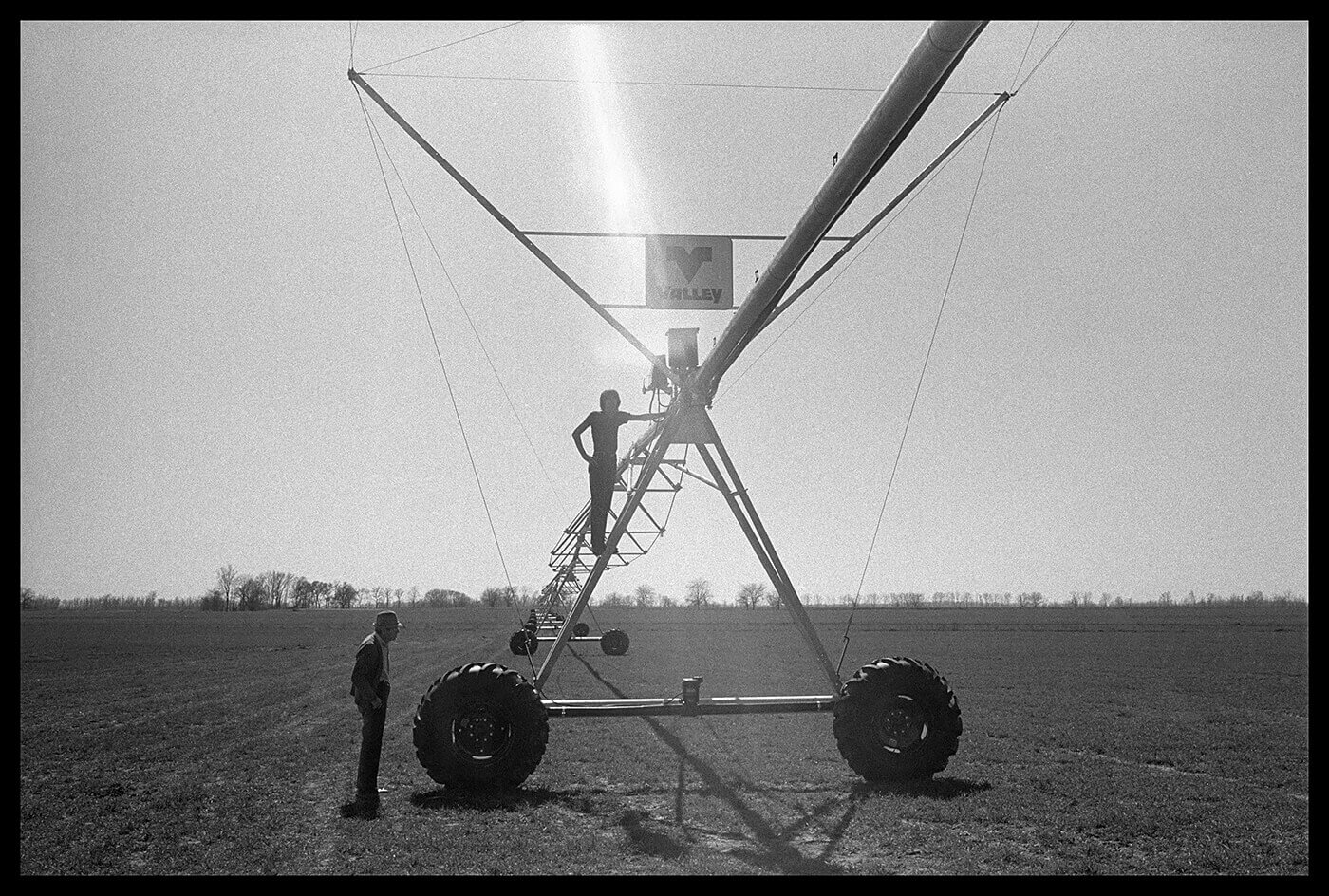
Granddaddy and Lind with Irrigation System, 1981 © Lisa McCord
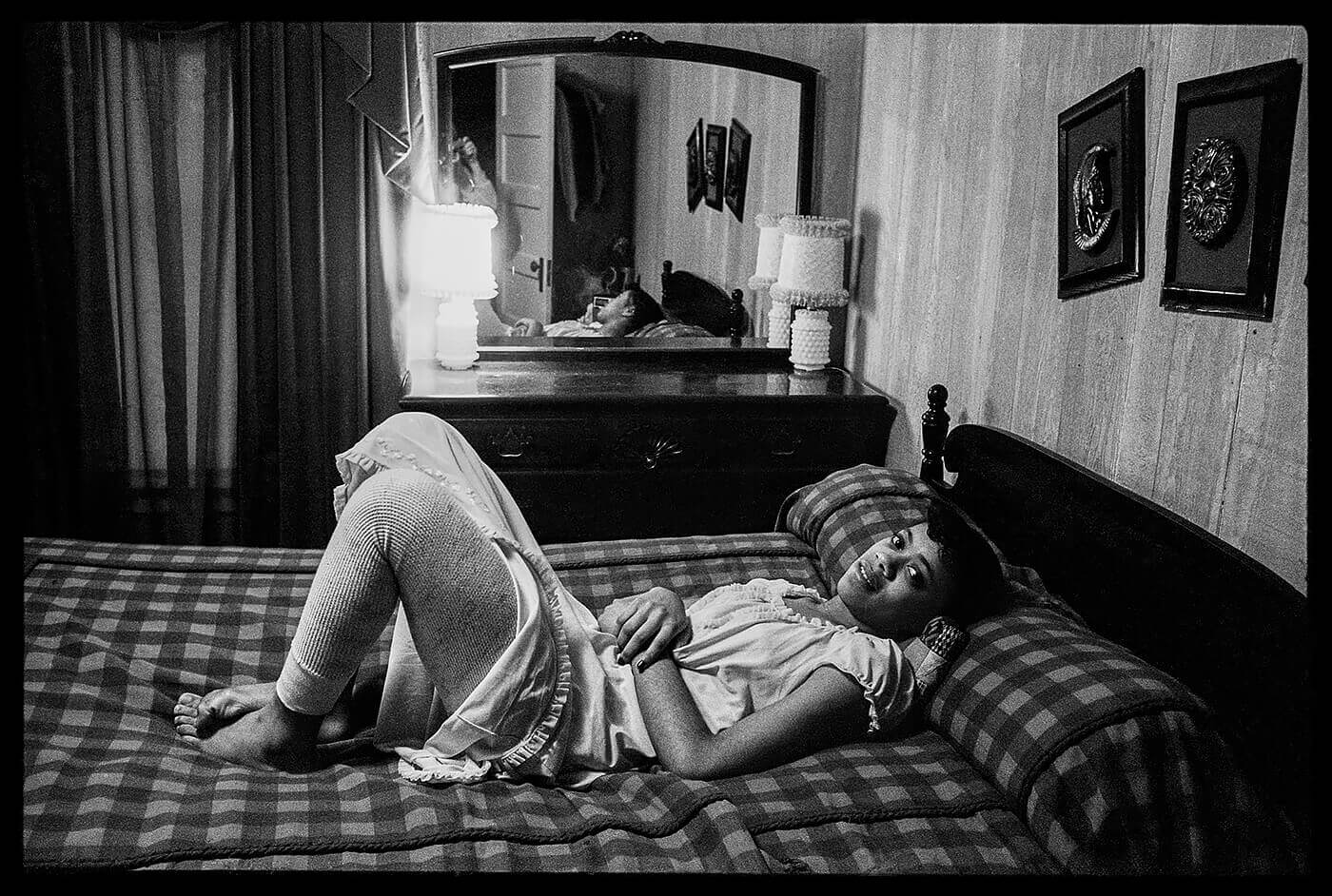
Cheryl on Bed, 1982 © Lisa McCord
Photographer, Pew fellow, and cultural activist Lonnie Graham also contributed an essay for the book, and he comments on McCord as a master storyteller and he delineates how her composition translates to narrative.
Graham observes,
''McCord demonstrates her prowess as a master in constructing images. We witness a lyrical ballet of poles in the image of men fishing. Behold the figure poised on an irrigator situated amid voluminous silos. A trio gathers consensus over the scribe, two players contest billiards both framed in their own doorways. The frame within a frame. The level of fluency achieved in this visual discourse owes to Lisa’s ability to see and compose with masterful finesse.''
Rare is a visual art project so rich in both personal stories, but also functioning at the same time to remind and reveal a historical and cultural perspective unique to a nation, and a time and geography. In her essay for the book, Aline Smithson highlights McCord’s ability to tell multiple threads of story in her imagery. She writes,
''There is a symbiotic relationship between storytelling and being Southern. This relationship seems to come from the experience of being raised in a slowed-down culture—a culture of traditions and family, of history and home, where there is room and time for contemplation. Lisa McCord is one of those visual storytellers.''
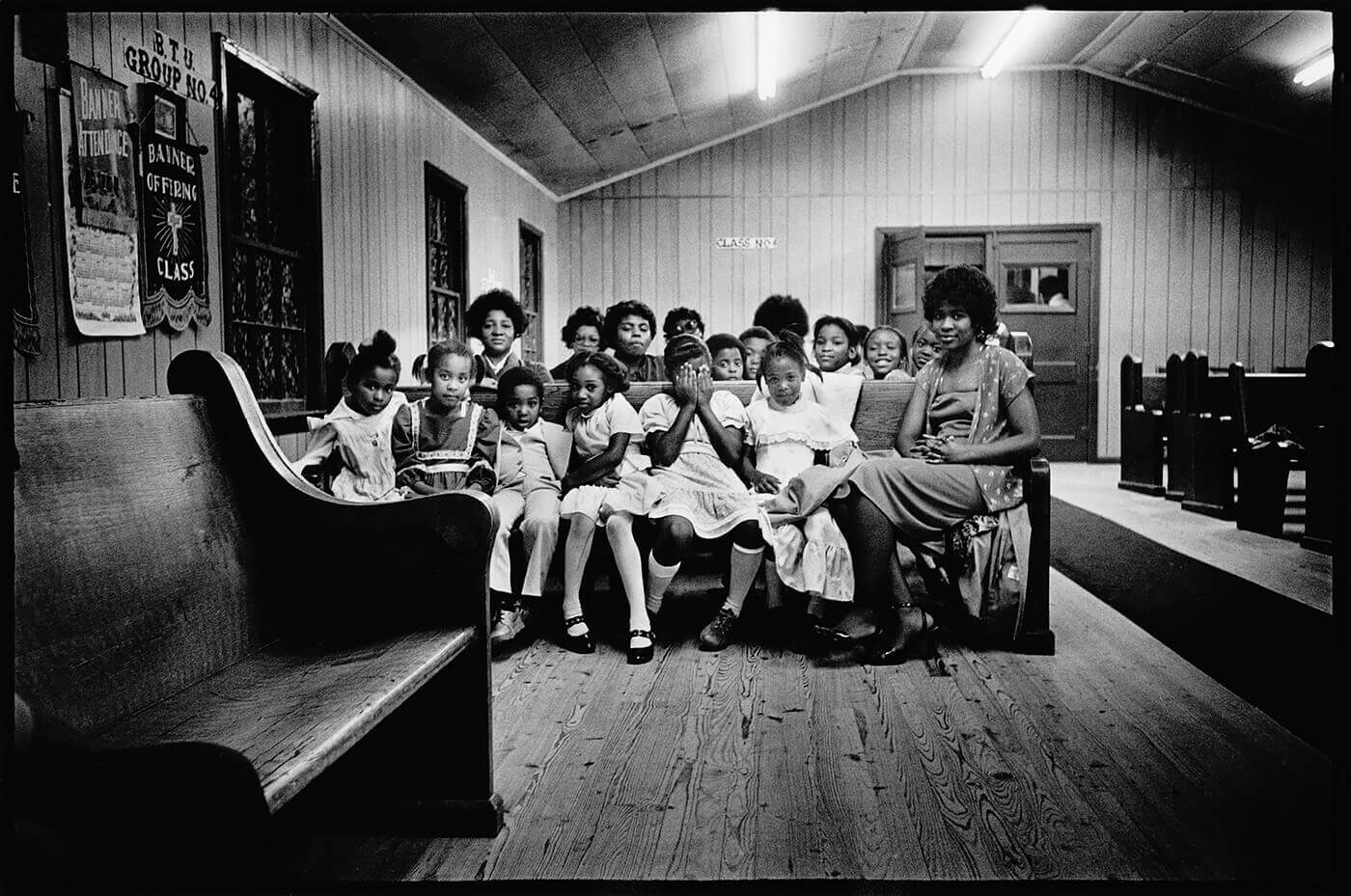
Sunday School, 1980 © Lisa McCord
Lisa McCord is a fine art and documentary photographer from the Arkansas Delta, who lives and works in Los Angeles and Arkansas. Focusing on her experiences on her family’s cotton farm, her creative practice explores concepts of storytelling, memory, and the passage of time. She has exhibited her work in galleries and museums, including Leica Gallery LA, Annenberg Space for Photography, Building Bridges Art Exchange, and Bruce Lurie Gallery. McCord’s work has been featured in solo exhibitions at the Memphis Cotton Museum, Fabrik Projects, Gallery 825, Slow Exposures, and Leica Gallery. Internationally, she has exhibited at the Museum of Nature of Cantabria in Spain, MIA Photo Fair in Milan, and Alta Vista in Paris. McCord’s work is in the permanent collections of the Arkansas Museum of Fine Arts and the Memphis Brooks Museum of Art. She has upcoming book signings at Photo London and Paris Photo in 2024. Her work has been featured in numerous publications including
AAP Magazine, Black & White Photography (UK edition), Float Magazine, and Feature Shoot. She was a Critical Mass Finalist in 2015, 2016, and 2021.
www.lisamccordphotography.com
@lisamccord
AAP Magazine 31 Portrait
Solo Exhibition 'Rotan Switch'
All about Lisa McCord
